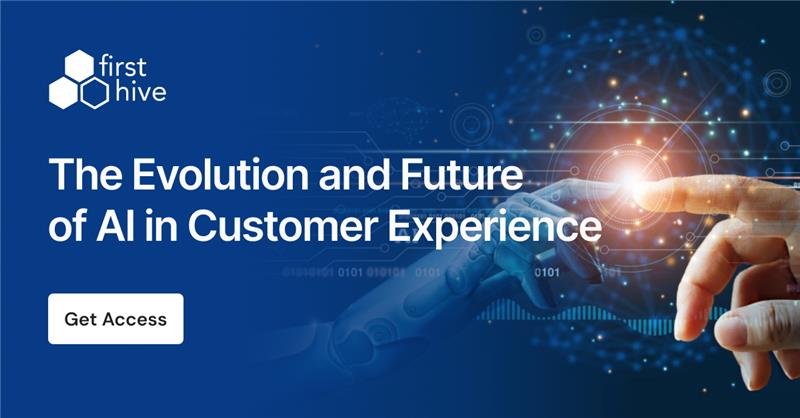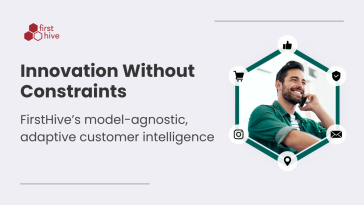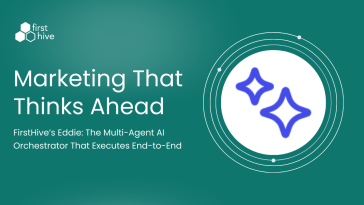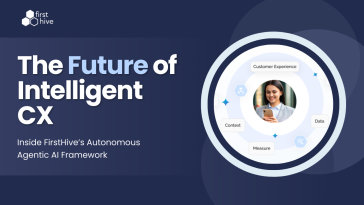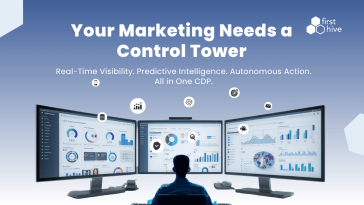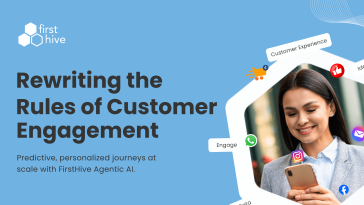Introduction
Artificial intelligence (AI) is rapidly transforming the landscape of customer experience (CX). From personalized marketing campaigns to AI-powered chatbots, businesses are leveraging AI to enhance customer interactions, streamline processes, and gain a competitive edge. Global spending on AI is expected to surpass $301 billion by 2026, highlighting the growing investment in this transformative technology. This report delves into the evolution of AI in CX, exploring its impact across marketing, sales, and customer service, with a particular focus on the role of generative AI (GenAI) and AI agents. It also examines the potential benefits and challenges of AI in CX and provides insights into future trends.
The Current State of AI in Customer Experience
AI is no longer an emerging technology; it is a critical component of modern CX strategies. Businesses are increasingly adopting AI to meet rising customer expectations for personalized, efficient, and seamless experiences. Studies have shown that AI is being utilized across various touchpoints in the customer journey.
AI in Marketing
AI algorithms analyze customer data, such as purchase history, browsing behavior, and social media activity, to deliver tailored marketing campaigns and product recommendations. This level of personalization enhances customer engagement and drives sales. For example, Ulta Beauty utilizes AI for personalized marketing campaigns, resulting in increased sales from returning customers. Interestingly, studies suggest that younger generations, particularly Gen Z, exhibit a stronger interest in AI-powered features like personalized deals and product recommendations.
AI in Customer Service
AI-powered chatbots and virtual assistants are becoming increasingly common in customer service. While 90% of consumers still prefer human interaction for customer service, AI-powered tools are proving valuable in handling simpler inquiries and providing 24/7 support. These intelligent systems can handle a wide range of tasks, from answering simple questions to resolving straightforward issues. This improves efficiency, reduces response times, and frees up human agents to focus on more complex inquiries that require empathy and nuanced understanding. Companies like Liberty London have successfully implemented AI chatbots to streamline customer service and enhance customer satisfaction.
Customer Feedback and AI
AI is also being used to analyze customer feedback and understand sentiment. Companies like Airbnb and Hootsuite use AI to analyze customer reviews and social media mentions, employing sentiment analysis to identify emerging issues and respond promptly to customer concerns. This allows businesses to proactively address customer dissatisfaction and improve their products and services.
Predictive Analytics
AI algorithms can analyze historical data to predict customer behavior and anticipate future needs. This allows businesses to proactively address potential issues, personalize offers, and optimize their products and services. For example, Starbucks uses AI-driven predictive analytics to provide personalized order suggestions through its mobile app.
To better illustrate the diverse applications of AI in CX, the following table provides a summary:
| Application | Description | Example | Benefits |
| Personalized Marketing | AI analyzes customer data to deliver tailored marketing campaigns and product recommendations. | Ulta Beauty uses AI to personalize marketing campaigns, increasing sales from returning customers. | Increased customer engagement, higher conversion rates, improved customer satisfaction. |
| AI-Powered Customer Service | AI-powered chatbots and virtual assistants handle customer inquiries, provide support, and resolve simple issues. | Liberty London uses AI chatbots to streamline customer service and enhance customer satisfaction. | Improved efficiency, reduced response times, 24/7 availability, cost savings. |
| Customer Feedback Analysis | AI analyzes customer reviews and social media mentions to understand customer sentiment and identify areas for improvement. | Airbnb uses AI to analyze customer reviews and identify common themes and sentiments. | Proactive issue resolution, improved customer satisfaction, data-driven product and service improvements. |
| Predictive Analytics | AI analyzes historical data to predict customer behavior, anticipate future needs, and personalize offers. | Starbucks uses AI to provide personalized order suggestions through its mobile app. | Proactive customer service, personalized experiences, improved customer retention. |
AI in Sales
AI is playing an increasingly important role in sales, helping businesses to identify leads, personalize interactions, and improve sales forecasting. AI-powered tools can analyze customer data to identify high-potential leads and predict their likelihood of conversion. This allows sales teams to focus their efforts on the most promising prospects, improving efficiency and increasing sales. AI can also be used to personalize sales interactions, providing customers with tailored recommendations and offers based on their individual needs and preferences.
The Impact of Generative AI and AI Agents
GenAI and AI agents are poised to further revolutionize CX.
Generative AI (GenAI)
GenAI is a type of AI that can create new content and ideas, including conversations, stories, images, and even music. In the context of CX, GenAI can be used to:
- Enhance Chatbots: GenAI can make chatbots more conversational and human-like, enabling them to handle more complex inquiries and provide more personalized responses.
- Generate Personalized Content: GenAI can create personalized marketing materials, product descriptions, and even email responses tailored to individual customer preferences. For example, sustainable energy specialist Octopus Energy uses GenAI to draft detailed email responses, resulting in higher customer satisfaction scores.
- Improve Customer Service Efficiency: GenAI can automate tasks such as drafting email responses, summarizing customer interactions, and providing agents with real-time guidance.
AI Agents
AI agents are autonomous intelligent systems that can perform specific tasks without human intervention. Examples of AI agents include virtual assistants like Siri and Alexa, as well as more complex systems like self-driving cars. In CX, AI agents can be used to:
- Automate Repetitive Tasks: AI agents can handle routine tasks such as scheduling appointments, processing orders, and answering frequently asked questions, freeing up human agents to focus on more complex issues. For example, a contact center AI agent can automatically ask customers questions, look up information, and provide solutions.
- Personalize Customer Interactions: AI agents can analyze customer data to provide personalized recommendations, offers, and support.
- Improve Customer Service Efficiency: AI agents can quickly access and analyze information from various sources to provide accurate and timely responses to customer inquiries.
Benefits and Challenges of AI in Customer Experience
Implementing AI in CX offers numerous benefits, including:
- Improved Customer Satisfaction: AI can enhance personalization, reduce response times, and provide 24/7 support, leading to higher customer satisfaction. For example, IndiGo Airlines implemented an AI chatbot that provided customers with a quick and hassle-free experience for various services, leading to increased customer satisfaction.
- Increased Efficiency and Productivity: AI can automate tasks, streamline processes, and provide agents with real-time assistance, improving overall efficiency and productivity. AI can also enhance knowledge management within organizations, making it easier for employees to access and share information.
- Cost Savings: AI can reduce operational costs by automating tasks, deflecting calls, and minimizing the need for human intervention.
- Data-Driven Insights: AI can analyze customer data to provide valuable insights into customer behavior, preferences, and needs, enabling businesses to make informed decisions.
However, there are also challenges associated with AI in CX:
- Lack of Human Touch: Over-reliance on AI can lead to a lack of human interaction and empathy, which can negatively impact customer satisfaction. It is crucial to find the right balance between AI-driven automation and human intervention to ensure that customers receive the personalized support they need.
- Integration Complexities: Integrating AI systems with existing infrastructure can be complex and require significant investment. Companies may need to upgrade their systems and invest in specialized IT professionals to ensure successful implementation.
- Data Privacy and Security: Collecting and analyzing customer data raises concerns about data privacy and security. Companies must ensure they comply with data protection regulations and implement robust security measures to protect customer information.
- Bias and Fairness: AI algorithms can perpetuate existing biases, leading to unfair or discriminatory outcomes. It is essential to address potential biases in AI systems and ensure they are developed and deployed responsibly.
AI and the Workforce
The introduction of AI in the workplace can have a significant impact on employees. While AI can automate tasks and improve efficiency, it can also raise concerns among employees about job security and the changing nature of their roles. It is important for businesses to address these concerns by providing training and support to employees, helping them adapt to the changing work environment and develop new skills.
Ethical Considerations for AI in CX
As AI becomes more prevalent in CX, it is crucial to consider the ethical implications of its use. This includes ensuring fairness, transparency, and accountability in AI systems. Companies must be mindful of potential biases in AI algorithms and take steps to mitigate them. They should also be transparent with customers about how AI is being used to collect and analyze their data.
Industry-Specific Applications of AI in CX
AI is being applied in various ways across different industries to enhance customer experience:
- Healthcare: Organizations like Kaiser Permanente are using AI to evaluate customer interactions and provide real-time guidance to agents, leading to improved customer satisfaction and agent adoption.
- Finance: Banco Pan has implemented AI-powered solutions to improve feedback delivery to agents, reduce operational costs, and enhance agent quality.
- Telecommunications: AI is being used to improve customer service with live human-like conversational agents, personalize sales interactions, and optimize network performance.
Future Trends of AI in Customer Experience
The future of AI in CX is promising, with several key trends emerging:
- Hyper-Personalization: AI will enable even more precise personalization, tailoring experiences to individual customer needs in real-time.
- Emotional AI: AI systems will become more adept at recognizing and responding to customer emotions, leading to more empathetic and human-like interactions.
- Omnichannel AI Integration: AI will be integrated across all channels, providing a seamless and consistent customer experience regardless of how customers interact with a brand.
- AI-Powered Self-Service: AI will enhance self-service options, empowering customers to find answers and resolve issues independently.
- Emerging Technologies: The future of AI in CX will also be shaped by emerging technologies like customer digital twins, emotion AI, and quantum computing, leading to more personalized, empathetic, and immersive customer experiences.
Conclusion
AI is revolutionizing customer experience, and its impact will only continue to grow in the coming years. The evolution of AI in CX has progressed from basic automation to sophisticated personalization and predictive analytics. Today, AI is being used to enhance customer interactions across marketing, sales, and customer service, driving efficiency, improving customer satisfaction, and providing valuable business insights.
GenAI and AI agents are poised to further transform CX by enabling more human-like interactions, automating complex tasks, and delivering hyper-personalized experiences. However, businesses must address the challenges associated with AI in CX, such as data privacy, bias, and the need for human interaction. Prioritizing ethical considerations, focusing on human-AI collaboration, and starting with pilot projects are crucial steps for successful AI implementation.


